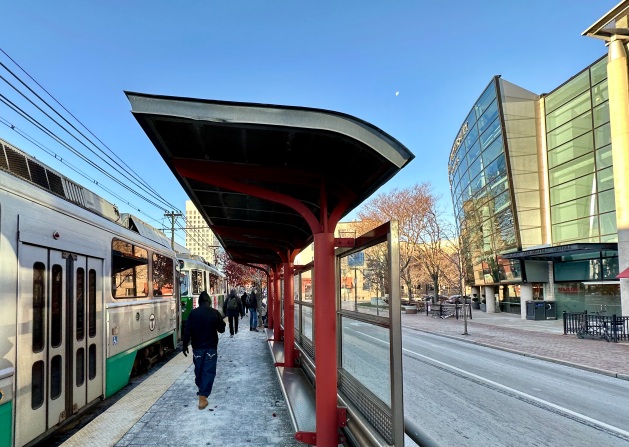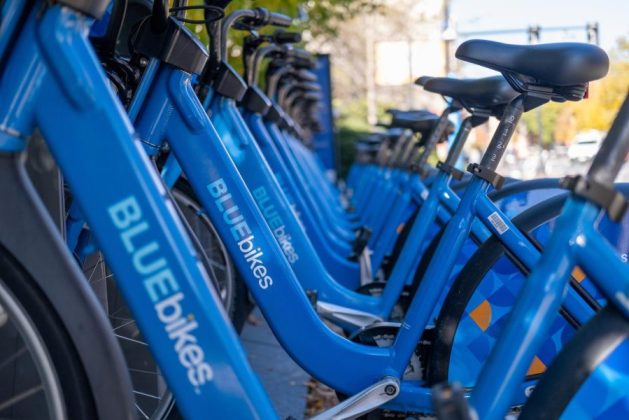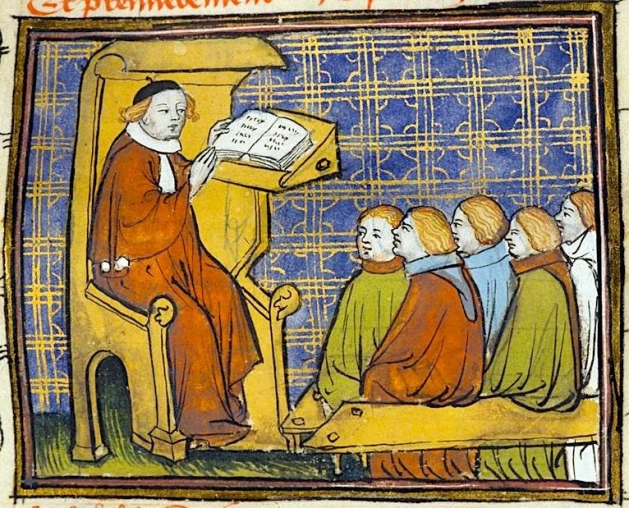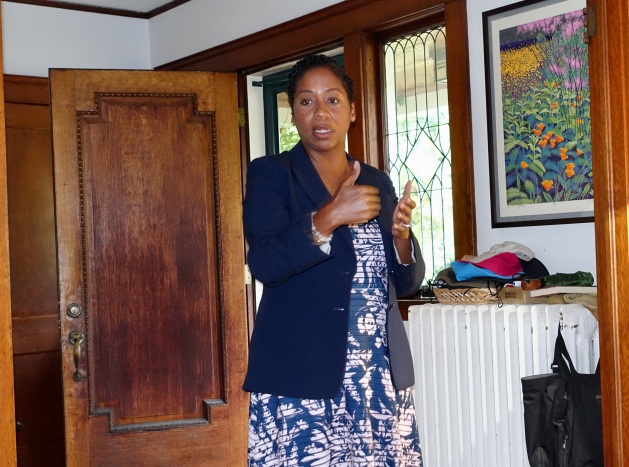Boston Globe editor Brian McGrory has finally made official what half the city has known for months: he’s leaving the Globe at the end of 2022 after nearly 10 years in charge in order to chair the journalism department at Boston University. He sent a memo to the staff a little while ago.
McGrory, who’d been a popular metro columnist before ascending to the top of the masthead, was named editor in the waning days of New York Times Co. ownership after Marty Baron left for The Washington Post. But McGrory helped pave the way for John Henry to buy the Globe in 2013, a process I described in my 2018 book, “The Return of the Moguls.” On McGrory’s watch, the Globe has thrived journalistically and has emerged as among a handful of large regional newspapers that have achieved financial sustainability.
Obviously there’s much more to be said, and much more will be said. I’ll just point out that he’s now a rival. The director of our School of Journalism at Northeastern is Jonathan Kaufman, a former Globe journalist. Moreover, McGrory and Kaufman both led news organizations that won Pulitzer Prizes — Bloomberg News in Kaufman’s case.
Here’s the Globe’s story on McGrory’s departure.
Congratulations to Brian. BU’s gain will be the Globe’s loss. The complete text of McGrory’s message, obtained from a trusted source, appear below.
Hey all,
I’ve written a lot of overly long memos to the room. I can’t promise this one will be any shorter, but I’ll do my best to be direct. I’m planning to step away from my role as editor by the end of this year.
When I took this job nearly a decade ago, I expected epic challenges and hoped for meaningful rewards. In retrospect, I had no idea on either front. Begin with the stories, so many once-in-a-generation stories, from the Boston Marathon bombings, to the Trump election, to a pandemic that changed everything, to the vital racial and social justice movement, to Trump’s failed reelection and its ugly aftermath, to this angst-ridden, not-quite-post-Covid netherworld that we’re in now. There were thousands of other stories in between, big consequential projects, deeply human narratives, breaking news, vital accountability work. You did it all with tenacity, urgency, and grace, and I’m honored to have been a part of that.
At the same time, the moment required us to confront the profoundly broken business model in American journalism, which calls to mind what a journalism elder said to me a number of years ago: You get to pick your career, but not when you do it. The industry was, as you know, a wreck. Big, proud newspapers were getting hollowed out. Answers were elusive. There were serious questions about our very viability. Facing all of that, what you’ve accomplished is nothing short of miraculous. You’ve embraced digital. You’ve shifted our mindset from being the paper of record to the paper of interest. You’ve found that sweet spot between what readers want and what our community needs. In doing so, you’ve built one of the most successful news sites in the world, http://bostonglobe.com, the foundation upon which this organization will grow for years. I hope you know how rare and important this is. And I’m honored to be part of that, too.
These kinds of notes inevitably turn formulaic and sappy, rarely a good combination, and I’m afraid I’m about to succumb to that form. There is so much that is great about this job, but there is a singularly meaningful reward that I wasn’t fully anticipating: my relationships with so many of you. From this seat, I had the privilege of thousands upon thousands of conversations. I saw your daily determination. I saw your commitment to the craft. I saw how you navigated the relentless demands of work in the most difficult times. I saw the toll it took, the resilience you had, the pride you felt. I saw how you care about your colleagues and the readers we serve.
I saw on a moment-by-moment basis how much the Globe means to you. What I also saw is how much you mean to the Globe. Don’t take this the wrong way, but you’re not always easy. You are, though, always worth it. This is the best newsroom in the country, and there’s no proper way to thank you for that.
Naming names is never a good thing, but I need to specifically thank Jen Peter and Jason Tuohey, the two best managing editors in America. You could throw at Jen a global pandemic that decimates every touchstone of everyday life, which we did, and she would hesitate only imperceptibly before continuing to bring order to the daily chaos that is journalism. She’s done it brilliantly. And put Jason among the most important digital thinkers in this industry today, the driving force behind so much of our growth.
Thanks, emphatically, to the Henrys, John and Linda. It’s just about incomprehensible that people with their options and resources would have the desire and commitment to plunge into the gritty and often thankless world of newspapers at a time when so many big thinkers were saying that the industry couldn’t be saved. They did, for all the right reasons, and the results have been profound – a thriving, innovative Globe with more subscribers than we’ve had in nearly 15 years and a role in this community that is as central as it’s ever been. Linda, especially, is at it every day – believe me, I know – often dismantling industry convention in pursuit of the next creative idea. She’s also built what is certainly the strongest leadership team the Globe has ever had, leaving no doubt that the next editor will be someone to celebrate.
In terms of what’s next for me, I’ve got two roles ahead. First, I’m heading to Boston University, where I’ve been offered the chair of the journalism department, an extraordinary opportunity to have an impact on the profession at a gold-standard institution. Hopefully that finally puts an end to the rumors. Second, I’ll write a regular column for the Globe, likely from the opinion section, ideally not too different from what I used to do in prior chapters of my professional life. I’m beyond excited about regaining a voice, and elated to remain a part of this place.
Our plan is for me to remain in this role until the end of the year or until a new editor starts, whichever comes first. Linda will be in touch very soon about the search.
Being the editor of the Globe would be the greatest honor of anyone’s professional life, and it certainly has been mine. For me, though, there’s something more. I was born here, raised here, watched my father read the Globe page-by-page every night, delivered the paper as a kid on a fifty-house route in Weymouth. All I ever wanted to be was a writer for the Globe. Being the editor was a dream I never dared to have.
Thank you for it all.
Correction. I really can subtract. Honestly, I know that 2022 minus 2012 is 10. Now fixed.













